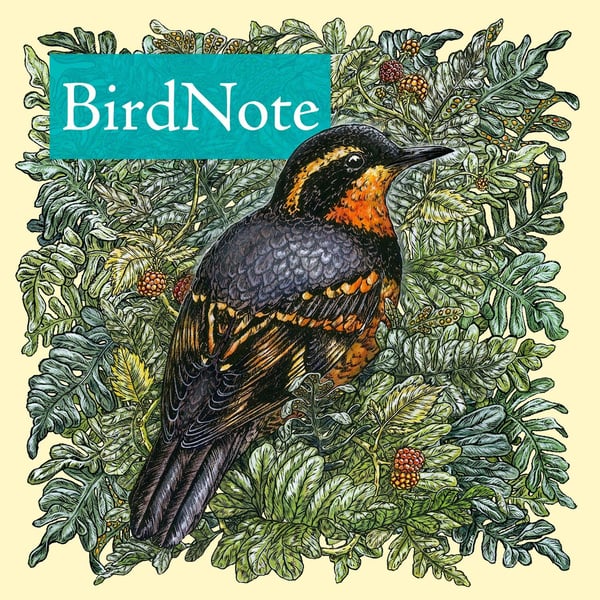Poet Holly J. Hughes Honors the Birds We've Lost
BirdNote Daily
BirdNote
4.6 • 1.2K Ratings
🗓️ 4 April 2025
⏱️ 11 minutes
🧾️ Download transcript
Summary
Transcript
Click on a timestamp to play from that location
| 0:00.0 | This is Bird Note. |
| 0:06.2 | Birds have always been a part of poet Holly J. Hughes' life. |
| 0:10.4 | One of her earliest memories is of a vibrant cardinal in the snow at her family's bird feeder. |
| 0:16.0 | That's how I learned the color red. |
| 0:18.2 | And I guess I just always felt like birds have been part of my family, |
| 0:22.8 | or maybe I wanted to be part of their family. As I've learned more about birds and their plight |
| 0:29.5 | in terms of loss of habitat and climate change and what some of them are doing with those long |
| 0:35.2 | migrations, my respect for them only deepens, |
| 0:38.3 | and I guess my concern for them has deepened also. |
| 0:43.3 | That concern is part of what led to Holly's book, Passings, a collection of poems memorializing |
| 0:49.3 | 15 species of birds that we've lost, or are presumed to be extinct. For the project, |
| 0:56.2 | Holly wrote in couplets, a traditional form in poetry. You know, pairs of two lines, often in the |
| 1:02.6 | same meter, used a lot by Shakespeare, usually rhyming, though not in these poems. |
| 1:08.4 | The long history of the form seemed to fit the birds, reaching back into the past. |
| 1:13.8 | But as she was writing, she noticed new and unexpected ways that couplets matched her subject. |
| 1:19.6 | Just the shape on the page kind of resembles wings. |
| 1:23.4 | And as I was finishing up the project and realizing how deeply interconnected we are with |
| 1:29.4 | birds, our fate, especially, I realized that the couplets could also suggest that interconnection. |
| 1:37.3 | The first of the poems she wrote, and the first in the book, was inspired by John James |
| 1:42.2 | Audubon's 1824 painting of a pair of passenger pigeons. |
| 1:47.4 | The passenger pigeon is maybe the most infamous modern extinction, going from unfathomably abundant |
| 1:54.0 | to vanished in mere decades. On September 1st, 1914, Martha, the last passenger pigeon, died in the Cincinnati Zoo. |
... |
Please login to see the full transcript.
Disclaimer: The podcast and artwork embedded on this page are from BirdNote, and are the property of its owner and not affiliated with or endorsed by Tapesearch.
Generated transcripts are the property of BirdNote and are distributed freely under the Fair Use doctrine. Transcripts generated by Tapesearch are not guaranteed to be accurate.
Copyright © Tapesearch 2025.

